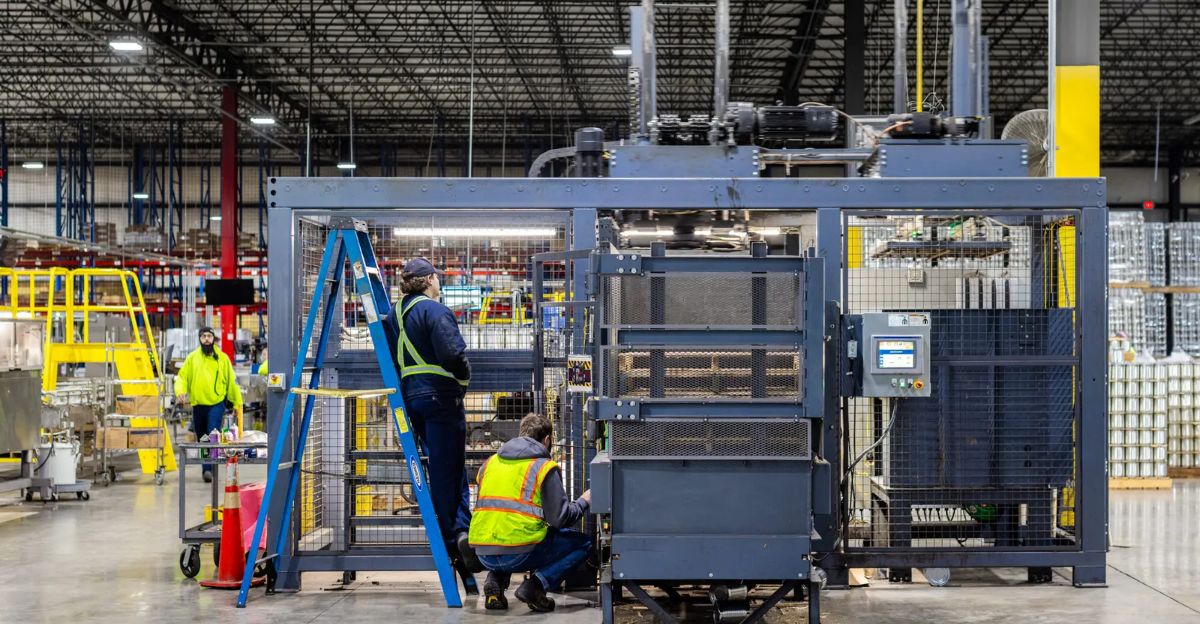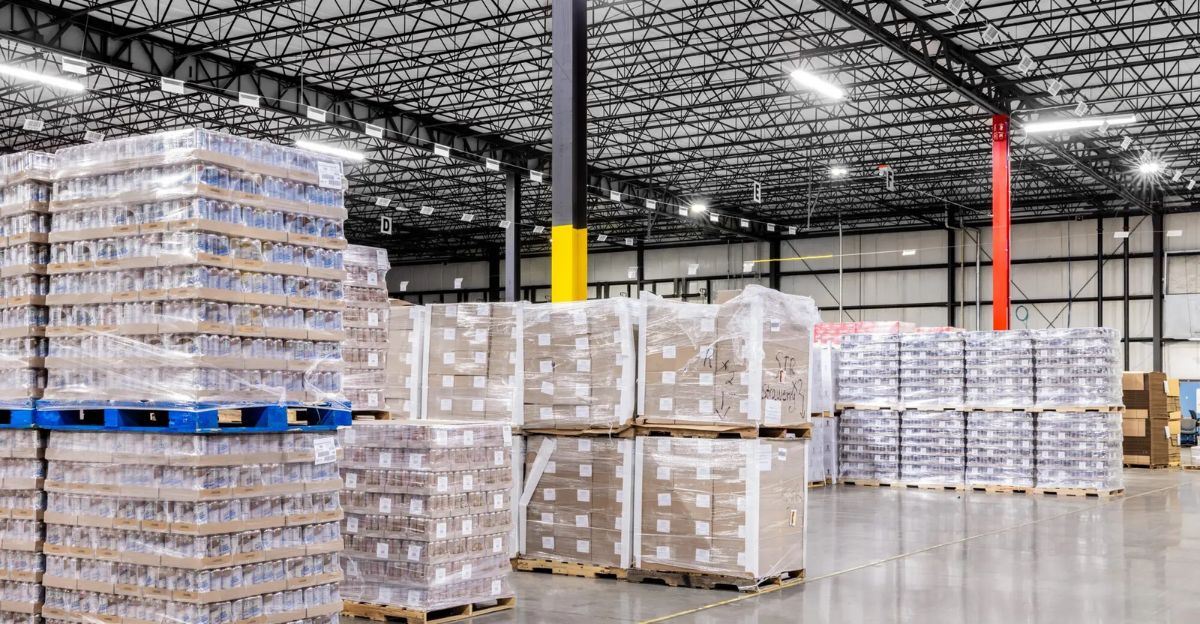
United Natural Foods Inc.’s (UNFI) sudden shutdown of its Schnecksville, Pennsylvania warehouse has sent shockwaves through the local economy, abruptly ending just four years of operations. The 1.3-million-square-foot facility, opened in 2021 to serve a major grocery cooperative, displaced 716 workers, making it the largest warehouse closure in the Lehigh Valley in recent memory.
CEO Sandy Douglas described the move as an exit from “an unprofitable relationship” with Key Food Stores Co-Operative. For affected families, the closure comes with financial stress and uncertainty. Here’s what’s happening as the community adjusts to one of the region’s most significant job losses.
Jobs Lost and Families Affected

The Schnecksville closure directly eliminates 716 positions, including truck drivers, warehouse selectors, forklift operators, supervisors, and administrative staff. Layoffs began August 12, 2025, and concluded by October 18, leaving local families without income during a challenging economic period. Small businesses are also bracing for reduced spending and potential supply chain disruptions.
Workers shared their experiences, highlighting the facility’s demanding environment. “Work was physically hard,” one associate said. “They constantly fire and hire new staff. Employees don’t last long there.” Another described the conditions as “exhausting” with “very long hours” and strict productivity expectations. With pay averaging $25.61 per hour—51% above the national average—finding comparable positions will be difficult in an increasingly competitive labor market.
Facility Investment and Purpose

Opened in fall 2021, the Schnecksville warehouse was a major UNFI investment, built to serve Key Food Stores and other clients across the Northeast. The facility featured advanced cold storage, including specialized freezers maintaining temperatures of -20 degrees, and supported the company’s expansion into the New York metropolitan market.
UNFI, headquartered in Providence, Rhode Island, operates more than 50 distribution centers across North America, serving around 30,000 customer locations. CEO Sandy Douglas oversees operations spanning Pennsylvania, California, Texas, and the Northeast corridor. The Schnecksville hub was among the company’s most modern facilities, representing a critical part of UNFI’s regional distribution network until the contract termination prompted its closure.
Economic Fallout and Regional Impact

The shutdown removes millions in annual payroll from North Whitehall Township, where UNFI had been the largest employer. The closure also reduces local Earned Income Tax revenue, affecting municipal services. Combined with other 2025 logistics layoffs in the Lehigh Valley—including Supply Chain Solutions (101 workers), DHL Supply Chain (66 workers), and Allen Distribution (80 workers)—nearly 1,000 positions have been lost this year alone.
This makes the UNFI closure the largest single warehouse shutdown in recent regional history. Local businesses now face the ripple effects of diminished spending and supply chain strain, while displaced workers compete for fewer available roles. Analysts warn that without targeted support, the region may struggle to maintain its historic position as a logistics hub.
Why the Closure Happened

UNFI and Key Food Stores mutually agreed to end their supply contract, originally intended to generate $10 billion in sales over ten years. CEO Sandy Douglas called the termination “a positive outcome for both parties” that aligns with UNFI’s three-year financial objectives. Taylor Ricketts of RetailStat highlighted the high cost of servicing densely populated urban areas, including narrow delivery windows and complex city logistics.
The termination carries financial penalties: a $53 million contract termination fee and a $24 million non-cash asset impairment. UNFI President and CFO Matteo Tarditi emphasized that closing the facility would ultimately reduce expenses, free up working capital, and achieve a payback period of one year or less. Other customers previously serviced from Schnecksville will transition to nearby UNFI centers in Harrisburg, Carlisle, Philadelphia, York, and Manchester.
Industry Shifts and Regional Challenges
The closure reflects broader trends in logistics: consolidation, automation, and efficiency-driven upgrades are reshaping warehouse operations nationwide. UNFI has invested heavily in AI-powered robotics at newer facilities, including its Manchester center, which opened in 2024. Meanwhile, Pennsylvania faces growing competition from southern states with lower labor costs, more favorable tax structures, and newer infrastructure.
Globally, hubs in Germany and China are upgrading automation and infrastructure to maintain high service levels. In the Lehigh Valley, aging warehouses and infrastructure limitations create challenges for retention and expansion. The Schnecksville shutdown illustrates how quickly long-term investments can become liabilities amid changing business relationships and competitive pressures.
Looking Ahead
As UNFI winds down Schnecksville operations, the future of the facility remains uncertain. The leased warehouse could attract another distributor, but finding a tenant for such a specialized property may prove challenging. Meanwhile, displaced workers face a mixed job outlook. Those with specialized skills, including CDL licenses, may find opportunities more readily, while general warehouse associates encounter crowded competition and potential wage reductions.
Workforce development programs, job placement services, and unemployment support will be essential for the community’s recovery. The closure serves as a stark reminder of the volatility in modern logistics, emphasizing the need for investment in modernization and workforce training. Without strategic planning, the Lehigh Valley risks losing its competitive edge as a premier distribution hub in the Northeast.